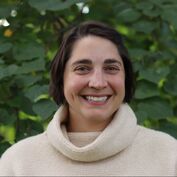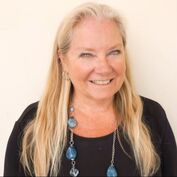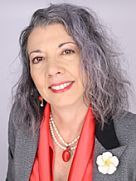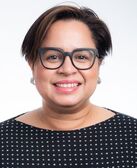Our Division A colleagues have been busy writing, traveling researching, and creating. In this newsletter, we share some posts from Division A members as a way to build connections between Division A members.

Interesting Projects and Tools
Erica Crane, Ed.D. has developed a journaling system from research and practice, based in liberatory leadership concepts to build necessary habits to lead in educational environments with equity. She created The Principal Journal at the conclusion of her dissertation, selecting impactful readings about developing liberatory-based school programs for daily inspiration. These daily pages allow leaders to consider their basics, especially as the work of equity-based educational leadership becomes more demanding and controversial. It is essential for leaders to take care of themselves, from drinking water to creating manageable priorities. This may sound simple, but the work of leading in community can be overwhelming and take precedence over simple self-preservation and care. Weekly, monthly, and annual pages allow for further tracking of actions and reflection. The journal is in alignment with the concepts of continuous improvement for equity and acts as a resource for scholars and practitioners to consider HOW liberatory work actually happens in schools, day to day. This work has the goal of supporting the best practices in leadership research so they can be enacted sustainably in educational organizations by transformational leaders. She sought to create a tool that could help turn research into practice. Here is a link to learn more about the journal: https://www.audaciouslearner.com/the-principal-journal
Erica Crane, Ed.D. has developed a journaling system from research and practice, based in liberatory leadership concepts to build necessary habits to lead in educational environments with equity. She created The Principal Journal at the conclusion of her dissertation, selecting impactful readings about developing liberatory-based school programs for daily inspiration. These daily pages allow leaders to consider their basics, especially as the work of equity-based educational leadership becomes more demanding and controversial. It is essential for leaders to take care of themselves, from drinking water to creating manageable priorities. This may sound simple, but the work of leading in community can be overwhelming and take precedence over simple self-preservation and care. Weekly, monthly, and annual pages allow for further tracking of actions and reflection. The journal is in alignment with the concepts of continuous improvement for equity and acts as a resource for scholars and practitioners to consider HOW liberatory work actually happens in schools, day to day. This work has the goal of supporting the best practices in leadership research so they can be enacted sustainably in educational organizations by transformational leaders. She sought to create a tool that could help turn research into practice. Here is a link to learn more about the journal: https://www.audaciouslearner.com/the-principal-journal

The past seven summers, Dr. Belinda Karge has coordinated a trip to Washington DC for the Concordia University Irvine Policy, Law and Practice in Dynamic Settings course. The time in DC helps students understand the economic, social, legal, political, and cultural contexts impacting educational organizations and practices in the United States (US). Conversations with elected and appointed officials and various organizational staff help provide perspective on policy development. Speaking to US Department of Education elected and appointed officials as well as US Department of State Office of Overseas Schools diplomats give students perspective that they otherwise would not be privy to in their local educational settings. Listening to a staff member at the Department of Education who has worked for seven Presidents is eye opening! A day at the Library of Congress researching a policy issue as well as a visit to the National Center for Education Evaluation and Regional Assistance are typically on the agenda. These onsite visits and the think tank opportunities for discussion help education leaders determine best practices in carrying out responsibilities and envisioning how they can impact change. If Division A members are interested in doing something similar, they can read https://ccte.org/wp-content/uploads/2020/10/CCTESPAN2020Monograph.pdf for more details or contact Dr. Karge at [email protected]

Dr. Hilary Lustick, an assistant professor at the University of Massachusetts in Lowell, is working on a project titled Uplifting the Voices of Restorative Coordinators. This project utilized surveys, interviews, and focus groups to gain the perspectives of restorative coordinators across the contiguous United States regarding restorative practice implementation. Specifically, they were interested in whether and how restorative practices play a role in schools’ efforts to equitably serve schools that enroll culturally and racially diverse students. This work supports leaders' abilities to meet students' social and emotional needs, create feasible processes for school discipline reform, and become familiar with the dilemmas of restorative justice during their leadership education. To learn more about her work, contact her at [email protected].

Recently Published Works
Drs. Judy Cox and Carol Mullen's qualitative interview study examined principals’ instructional actions in rural, high-poverty schools and the perceived impact on student achievement. The published article connects to Division A's goals by mapping how leadership impacts rural, high-poverty schools through principals' instructional leadership practice in Title I settings. Division A members interested in evidence-based practices for improving student learning in under-studied contexts may find this work compelling. Reference: Cox, J. S., & Mullen, C. A. (2023). Impacting student achievement: Principals’ instructional leadership practice in two Title I rural schools. Journal of School Leadership, 33(1), 3-25. doi:10.1177/10526846221133996
Drs. Judy Cox and Carol Mullen's qualitative interview study examined principals’ instructional actions in rural, high-poverty schools and the perceived impact on student achievement. The published article connects to Division A's goals by mapping how leadership impacts rural, high-poverty schools through principals' instructional leadership practice in Title I settings. Division A members interested in evidence-based practices for improving student learning in under-studied contexts may find this work compelling. Reference: Cox, J. S., & Mullen, C. A. (2023). Impacting student achievement: Principals’ instructional leadership practice in two Title I rural schools. Journal of School Leadership, 33(1), 3-25. doi:10.1177/10526846221133996

Daphne Warren recently wrote and published a case with Dr. Ericka Roland, assistant professor and Daphne’s dissertation chair at University of Texas at Arlington. The purpose of their scholarly article, Assignment Negotiation: Critical Race Theory and Educational Leadership Preparation Program, was for readers to explore the challenges many faculty experience when they engage with antiracism leadership teaching. This work is part of the Journal of Cases in Educational Leadership Anti-Racist Leadership Special Issue-Invited Authors only publication. Included in this article are Critical Race Theory reading resources, discussion questions, topic related reading resources, and a racial audit activity. Reference: Roland, E., & Warren, D. (2023). Assignment negotiation: Critical race theory and educational leadership preparation program. Journal of Cases in Educational Leadership (OnlineFirst). https://doi.org/10.1177/15554589231173356

Looking for Collaborators
Dr. Armen Alvarez, a storyteller & critical discourse scholar, would like to connect with other scholars that are interested in restorative justice for Black, Indigenous, People of Color (BIPOC) understanding their valuable contribution to ways of knowing. Dr. Alvarez's extensive experience in academia includes program development, non-profit administration, faculty roles, academic research, and storytelling to unite students and academic scholars through culture. As a minoritized scholar, she employs Critical Discourse Analysis to dismantle the rhetoric of white settler colonialism, aiming to restore the valuable contributions of BIPOC to ways of knowing. You can find her on Twitter and Linked In, or contact her at [email protected]
Dr. Armen Alvarez, a storyteller & critical discourse scholar, would like to connect with other scholars that are interested in restorative justice for Black, Indigenous, People of Color (BIPOC) understanding their valuable contribution to ways of knowing. Dr. Alvarez's extensive experience in academia includes program development, non-profit administration, faculty roles, academic research, and storytelling to unite students and academic scholars through culture. As a minoritized scholar, she employs Critical Discourse Analysis to dismantle the rhetoric of white settler colonialism, aiming to restore the valuable contributions of BIPOC to ways of knowing. You can find her on Twitter and Linked In, or contact her at [email protected]

Dr. Gülnur Ak Küçükçayir is a teacher in Ankara, Turkey. She recently received her Ph.D. from Gazi University. She has developed an interdisciplinary holistic model at the blend of business and human resource management, in addition to the school/education lens, that will contribute to the professional development and training of school leaders. She designed a conceptual framework according to the theory synthesis and tested the model using mixed methods. This model, which can be applied to any professional group, was successful when applied to educational leaders. She presented the theoretical infrastructure of the data collection instruments of this research in a roundtable session at AERA 2021. She is seeking collaborators and would like to be able to apply this research in collaboration with academicians and different education administrators (maybe as a project) in another country. Contact her at [email protected]